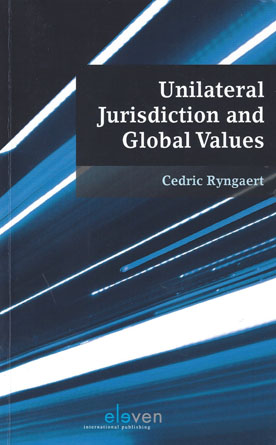
This book aims to identify opportunities, limits and obstacles to the exercise of unilateral jurisdiction in the common interest by states that have no (or at least not the strongest) connection to a situation. In doing so, it seeks to find entry points in the international law of jurisdiction for the realization of cosmopolitanism.
The author investigates, from both a normative and an empirical point of view, whether the international legal system accommodates the exercise of unilateral jurisdiction in a cosmopolitan fashion by states or regional organizations such as the European Union, whether there are indications in practice that such jurisdiction is indeed exercised, and what limitations, if any, are or should be imposed.
In this investigation, the book draws on insights from public international law, legal theory, and political philosophy.